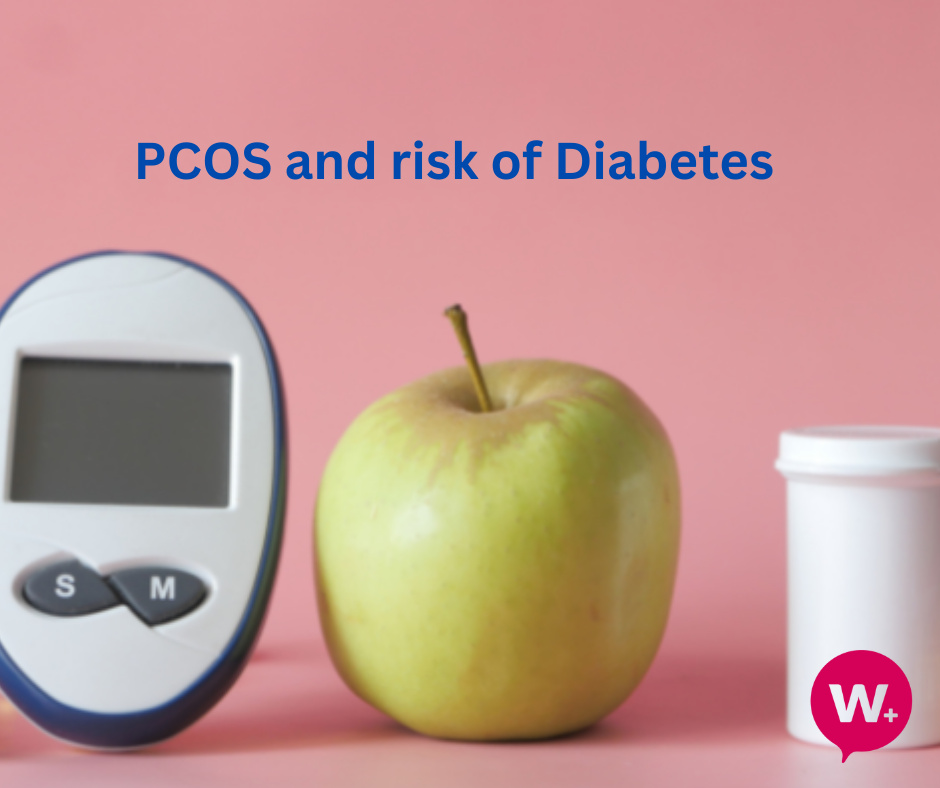Polycystic ovary syndrome (PCOS) is a hormonal and metabolic disorder that affects many women and is associated with an increased risk of developing type-2 diabetes.
Irregular periods, weight gain, unusual hair growth on body and face (hirsuitism), acne are few symptoms of PCOS.
However, there are several steps you can take to manage the risk of diabetes in women with PCOS.
Here are some tips –
- Maintain a healthy weight: Obesity or excess weight can worsen insulin resistance, a key feature of PCOS and a precursor to type 2 diabetes. Aim to achieve and maintain a healthy body weight through a balanced diet and regular exercise. Losing just 5-10% of your body weight can have a significant impact on improving insulin sensitivity and reducing the risk of diabetes.
- Follow a balanced diet: Adopting a well-rounded, balanced diet is crucial in managing PCOS and reducing the risk of diabetes. Focus on consuming whole, unprocessed foods, including fruits, vegetables, whole grains, lean proteins, and healthy fats. Avoid sugary and refined foods as much as possible, as they can lead to insulin spikes and worsen insulin resistance.
- Choose low glycemic index (GI) foods: Foods with a low glycemic index have a gentler effect on blood sugar levels and help regulate insulin response. Include low GI foods such as whole grains, legumes, nuts, and non-starchy vegetables in your meals. These choices can help maintain stable blood sugar levels and reduce the risk of developing diabetes. A low carbohydrate diet helps in managing sugar levels and weight.
- Engage in regular physical activity: Regular exercise is essential for managing insulin resistance and reducing the risk of diabetes. Engage in at least 150 minutes of moderate-intensity aerobic exercise or 75 minutes of vigorous-intensity aerobic exercise per week. Additionally, incorporate strength training exercises to build muscle mass and improve insulin sensitivity.
- Monitor blood sugar levels: Keep an eye on your blood sugar levels by regularly checking your fasting blood glucose and HbA1c levels. This can help detect any abnormalities early on and allow for timely intervention.
- Consider medication and supplements: In some cases, healthcare professionals may prescribe medications such as metformin to improve insulin sensitivity and regulate menstrual cycles in women with PCOS. Certain supplements like inositol and chromium have also shown potential in improving insulin sensitivity. However, always consult with a healthcare provider before starting any medications or supplements.
- Seek regular medical check-ups: Visit your doctor regularly to monitor your PCOS symptoms and overall health. They can provide guidance, perform necessary tests, and make recommendations tailored to your specific needs.
- Manage stress levels: Chronic stress can contribute to hormonal imbalances and worsen insulin resistance. Incorporate stress-management techniques such as meditation, deep breathing exercises, yoga, or any activity that helps you relax and unwind.
Remember, everyone’s situation is unique, so it’s essential to work closely with your gynecologist who can provide personalized advice and guidance based on your specific needs, blood reports and medical history.






,